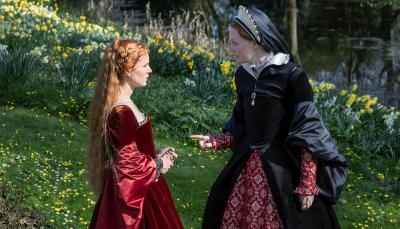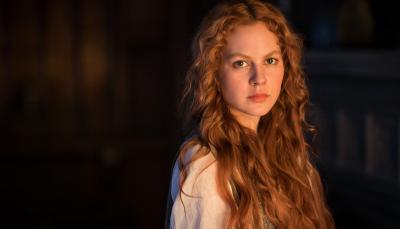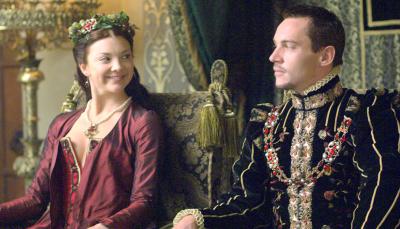'Becoming Elizabeth' Puts a New Spin on a Familiar Tudor Tale
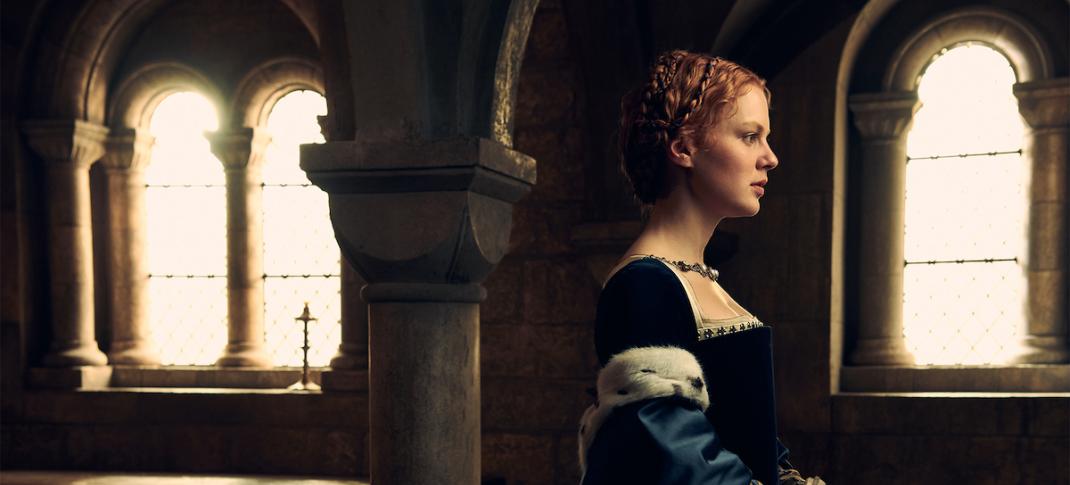
Alicia von Rittburg in "Becoming Elizabeth"
(Photo: Starz)
As we celebrate the Platinum Jubilee of the second English queen named Elizabeth, it's worth asking ourselves why, nearly 500 years after her reign began, we as a culture are still so fascinated by the first. Perhaps it's because Elizabeth Tudor represents so much that we want our leaders to be: Trailblazers, icons, survivors. A woman who refused to bow to the whims of the men around her, and forged her own path in a world that desperately wanted her to fail.
But Elizabeth was of necessity such a chameleon in life that it's easy for us to project our own ideas about who she was onto her memory. And, to be fair, as a general rule we as a culture tend to only pay attention to certain aspects of her story — we like to remember her in the full flush of her power, wearing white face paint and enormous ruffs, defeating the Spanish Armada without breaking a nail, and serving as Will Shakespeare's most famous patron. We don't like to look too closely at how hard Elizabeth had to work to become Gloriana or think too much about what she likely had to sacrifice and survive. along the way.
The new Starz period drama Becoming Elizabeth which arrives this weekend and runs for the next eight weeks on the premium cable network aims to change that, approaching the story of Elizabeth in a new (and fairly unprecedented) way. Set in the immediate aftermath of King Henry VIII's death, it shows us Elizabeth as a young girl who, at this moment in time, is about as far removed from that iconic image we all of her as it's possible to be.
Just fourteen years old and the daughter of a woman who is still casually referred to as "the Great Whore," this Elizabeth has no power and is very much still finding herself. Thrust into a game whose rules she doesn't yet understand, she is torn between her devoutly Catholic older sister Mary (Romola Garai) and her fiercely Protestant younger brother King Edward VI (Oliver Zetterström), unsure who to trust and seen as little more than a pawn by many of the powerful Engish lords.
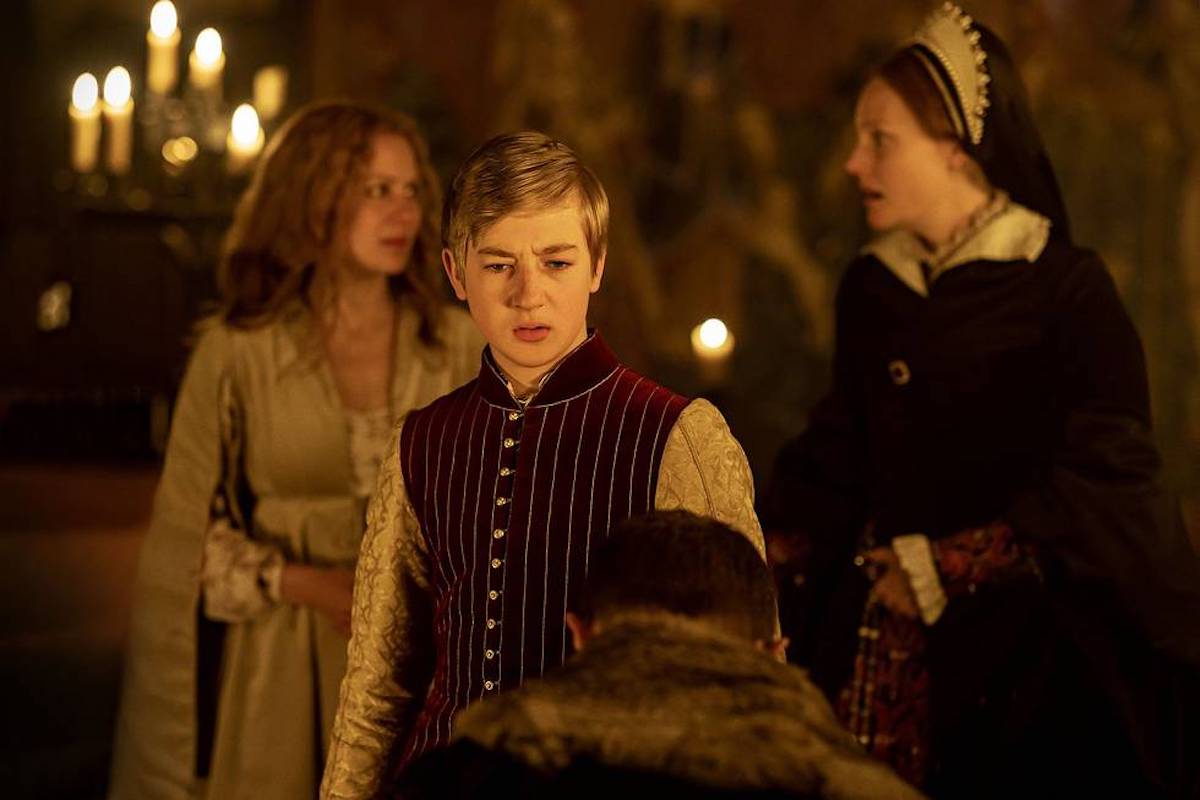
With Henry's death and Edward's ascension, Elizabeth goes live with her stepmother, the queen's widow Catherine Parr (Jessica Raine), and her new husband Thomas Seymour (Tom Cullen), whom she marries basically moments after Henry's death. This would-be power couple, blocked from wielding influence over the new king thanks to Thomas's brother Edward (John Heffernan), the Lord Protector, understands that controlling the king's Protestant older sister is one way to keep themselves in the game.
Unfortunately, Thomas almost immediately begins flirting with Elizabeth, and what at first seems innocent quickly becomes something uncomfortable and manipulative. The show is refreshingly straightforward in its depiction of the young princess as an actual teen: she's impressionable, trusting, and often silly in a way that feels legitimate and excuses her for not knowing yet that handsome, charming older men who smile at you are almost certainly not to be trusted. Instead, Elizabeth is flattered, flirts back, and starts falling in love.
Historically speaking, Thomas and Elizabeth's real relationship is murky, and almost entirely dependent on which historians you read, who describe it as everything from innocent courtly flirtation to an overtly sexual affair. In Becoming Elizabeth that attraction is made explicit, but the show staunchly refuses to play their relationship like a romance. Instead, the show repeatedly emphasizes its problematic elements: Thomas's age (he was almost 40!), his marital status, and the power differential between them with regard to her rank and presence in their home. It all feels very uncomfortable and gross, and the story is very clear about where the blame for the situation lies and how disturbing their interactions are. (When Catherine finally confronts Elizabeth about what's going on between them, her first line is: "What did he do?" She is, after, all, a woman who knows what it's like to be used by older men.)

Much of the early episodes of Becoming Elizabeth are devoted to table setting, working to lay out the world of the story beyond the teen princess at its center. As different factions jostle for power, the show does an admirable job of laying out the connections and motivations of over a half dozen major players, including the powerful Dudley family, the Lord Protector, and the elder princess Mary, all without delving into drab reams of exposition.
The series is impeccably cast throughout, with von Rittberg walking a careful balance between youthful naivete seasoned with the occasional flash of steel that hints at the woman Elizabeth will one day become. And while Cullen is a perfectly believable scuzzball (ladies, haven't we all dated some version of this man?). it's Garai and Raine who truly steal the show in the first four episodes that were made available for critics, giving two women who are also frequently overlooked on the historical road to Elizabeth's reign the sort of depth and layers they are rarely afforded in other media.
Catherine tends to be conveniently remembered by history for merely surviving a man who liked to murder his wives, but she was actually a trailblazer in her own right: a scholar and author, she was the first Englishwoman to publish a prayer book translation under her own name. And Mary is generally a woman defined by the tragic end of her reign, abandoned by her husband, dying of uterine cancer, and forever after called "Bloody Mary". But here, both women are fleshed out in ways we don't often see. Mary is torn between her family, her faith, and her own political ambitions. Catherine has real spirit and bite, no tolerance for fools, and an obvious game plan for how she'd run the country if she got half the chance. They're fascinating figures, and it feels like it's taken way too long to get to this point.
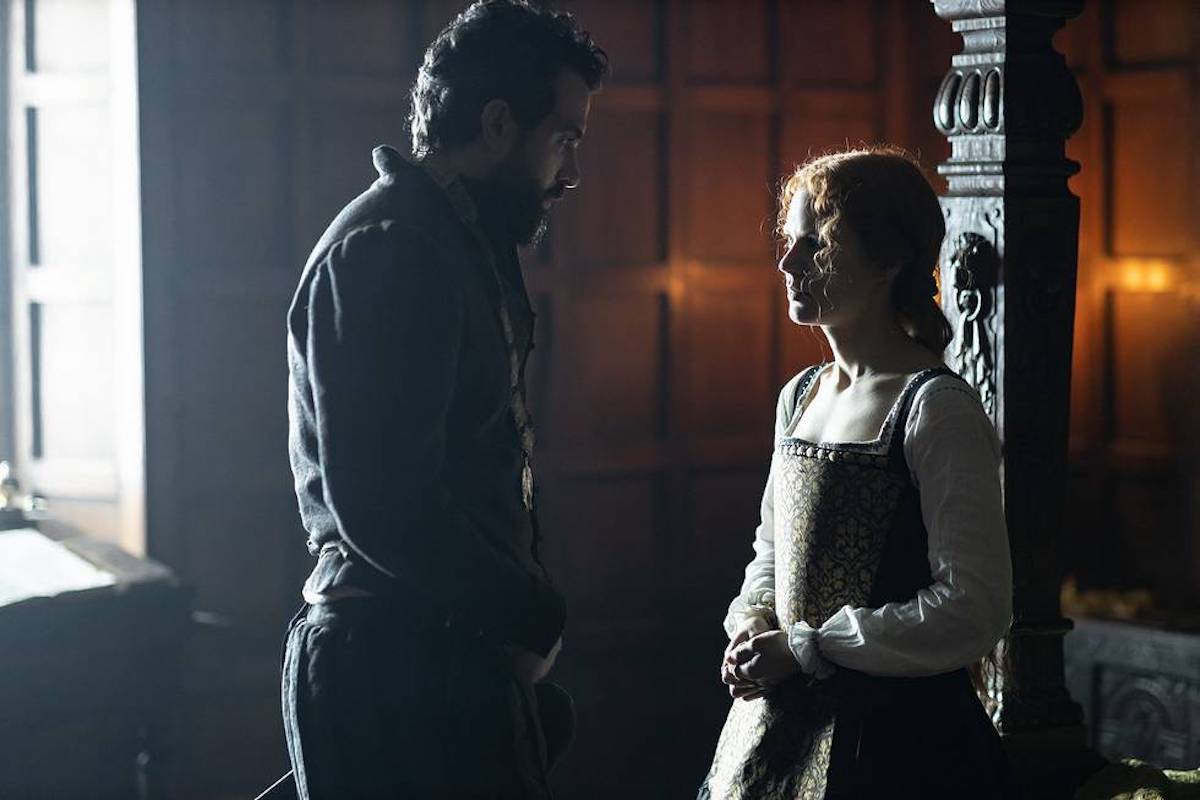
Becoming Elizabeth is certainly a bit darker, quieter, and less luxurious than some of the Tudor dramas that we've seen recently. But it somehow also feels more honest.
Lacking the more magical elements that colored dramas like The White Queen and sticking a little closer to the historical record than The White Princess, Becoming Elizabeth seems to be looking for a slightly more realistic way to explore the girl Elizabeth Tudor used to be—before she became the woman we remember.
Becoming Elizabeth premieres Sunday, June 12 on Starz, with new episodes to follow weekly.


